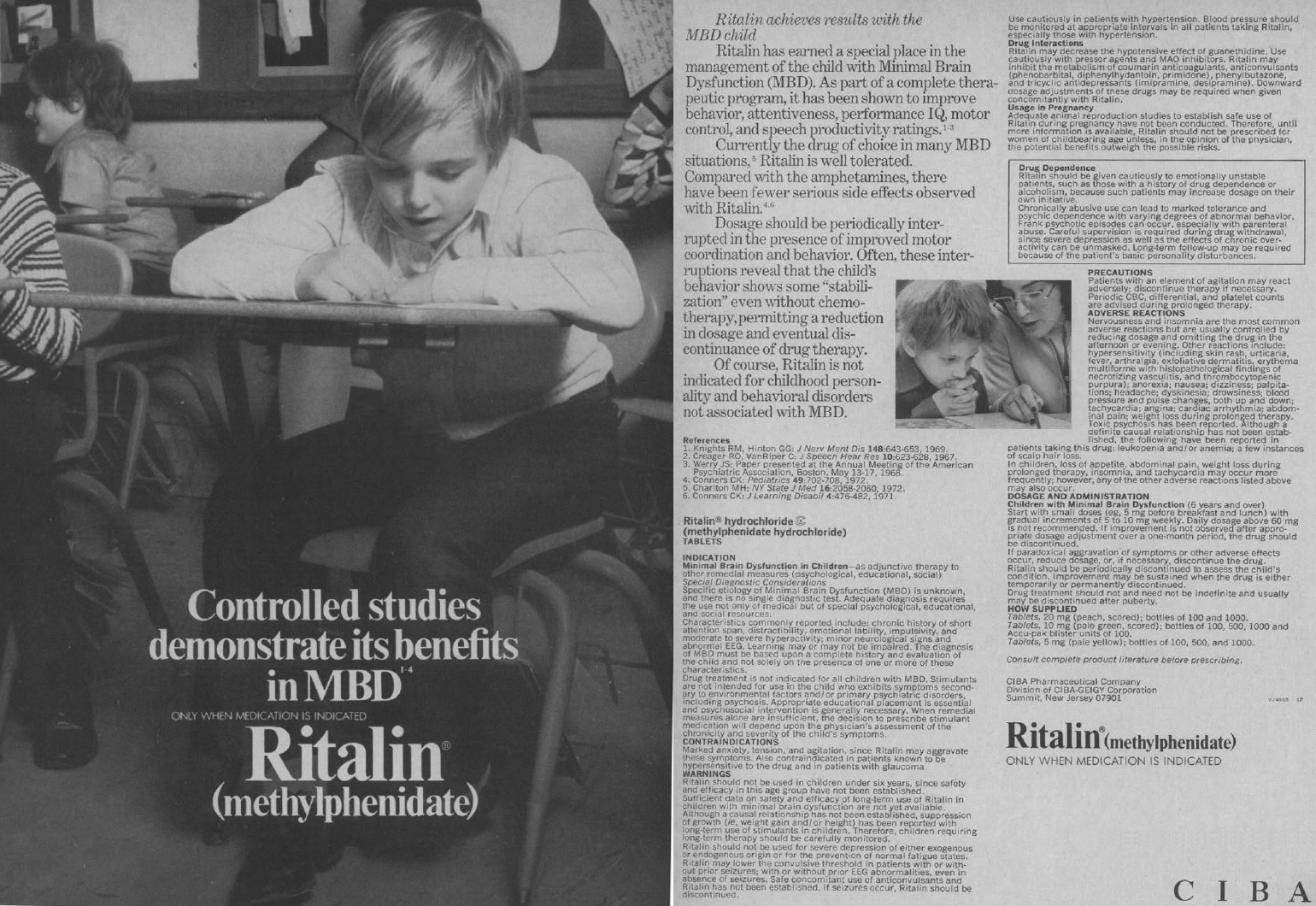

|
|
Ritalin advertisement, 1974. American Journal of Diseases of Children, Vol. 128, No. 6, pp. 892-893. Controlled studies demonstrate its benefits in MBD(1-4) only when medication is indicated RITALIN® (methylphenidate) Ritalin achieves results with the MBD child. Ritalin has earned a special place in the management of the child with Minimal Brain Dysfunction (MBD). As part of a complete therapeutic program, it has been shown to improve behavior, attentiveness, performance IQ, motor control, and speech productivity ratings.(1-3) Currently the drug of choice in many MBD situations,(5) Ritalin is well tolerated. Compared with the amphetamines, there have been fewer serious side effects observed with Ritalin. (4,6) Dosage should be periodically interrupted in the presence of improved motor coordination and behavior. Often, these interruptions reveal that the child's behavior shows some "stabilization" even without chemotherapy, permitting a reduction in dosage and eventual discontinuance of drug therapy. Of course, Ritalin is not indicated for childhood personality and behavioral disorders not associated with MBD. References 1. Knights RM, Hinton GG: J Nerv Ment Dis 148:643-653, 1969. 2. Creager RO, VanRiper C: J Speech Hear Res 10:623-628, 1967. 3. Werry JS: Paper presented at the Annual Meeting of the American Psychiatric Association, Boston, May 13-17, 1968. 4. Conners CK: Pediatrics 49:702-708, 1972. 5. Charlton MH: NY State J Med 16:2058-2060, 1972. 6. Conners CK: J Learning Disabil 4:476-4802, 1971. Ritalin® hydrochloride (methylphenidate hydrochloride) TABLETS Consult complete product literature before prescribing. CIBA Pharmaceutical Company Division of CIBA-GEIGY Corporation Summit, New Jersey 07901 |